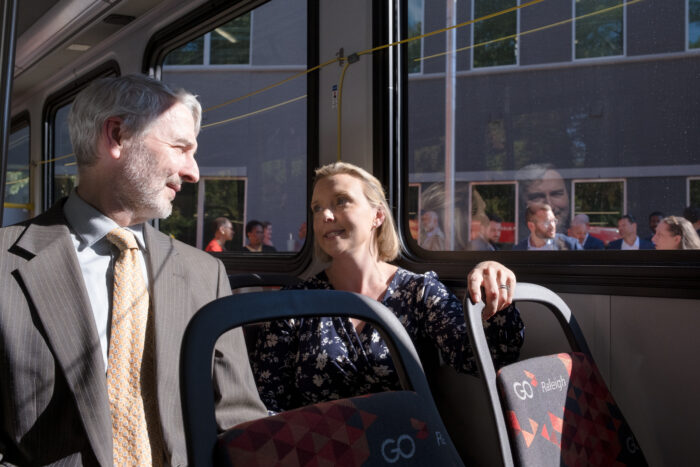North Carolina sets the stage for cutting truck pollution across the South
Transportation pollution is the largest source of carbon emissions in the South and nationally. This week the Southern Environmental Law Center welcomed with open arms North Carolina Governor Roy Cooper’s executive order to press forward with a plan to cut pollution from medium and heavy-duty trucks across the state.
While these types of vehicles are only 6.5% of the vehicles on the road in North Carolina, they contribute almost 34.5% of transportation heat-trapping gas emissions, 71.2% of pollution from nitrogen oxides, and 54.5% of direct fine particulate matter pollution, which are all linked to serious health harms.
We are thrilled to see North Carolina leading the national transition to cleaner and more affordable vehicles.
Kym Meyer, Senior Attorney
“Governor Cooper’s executive order directing DEQ to craft an Advanced Clean Trucks program for North Carolina is an important, forward-thinking step to address climate change, the health of our communities, and environmental justice,” says Senior Attorney Kym Meyer. “It should be used as a great example and model across the region.”

Trucking facilities are often adjacent to historically marginalized communities, putting the health of those who can least afford it at risk.
“Reducing the pollution from medium and heavy-duty trucks that poisons the air we breathe and contributes to climate change is essential to protecting people’s health and our communities,” adds Meyer. “We are thrilled to see North Carolina leading the national transition to cleaner and more affordable vehicles. The move will more quickly benefit North Carolinians with more vehicle choices in the marketplace, less volatile fuel prices, and cleaner, healthier air.”
In addition to reducing harmful pollution in North Carolina, an analysis from Research Triangle Institute International showed that an Advanced Clean Trucks program will bring billions of dollars in cost savings to the state in health and climate benefits between 2020 and 2050 amounting to well over $100 billion, and potentially much higher with additional fuel cost savings.
SELC will continue to push for stronger standards for stopping climate-changing transportation pollution across our region.
